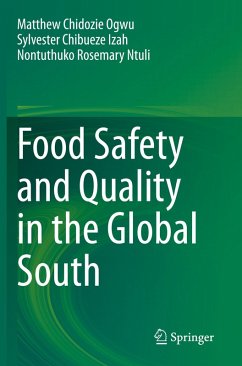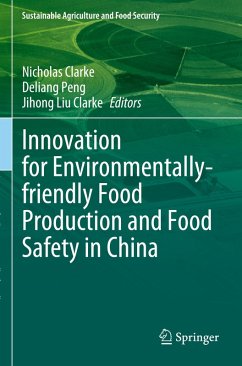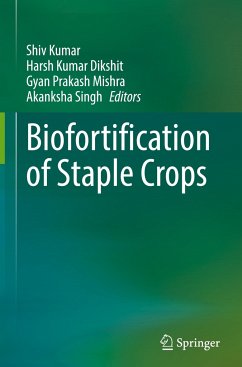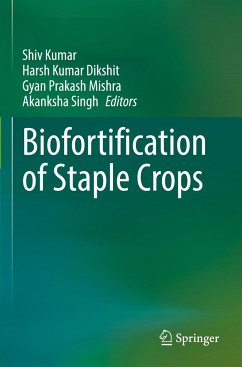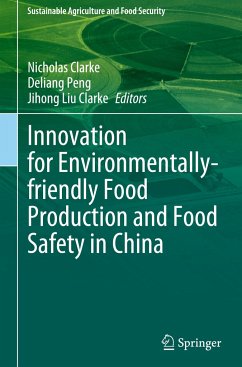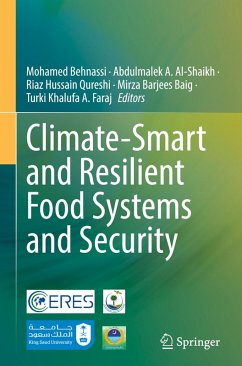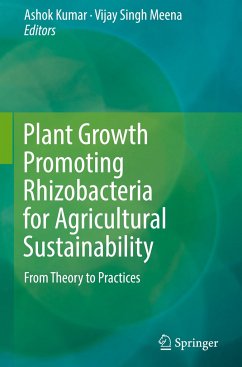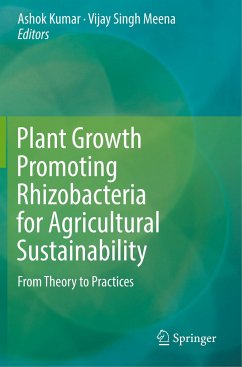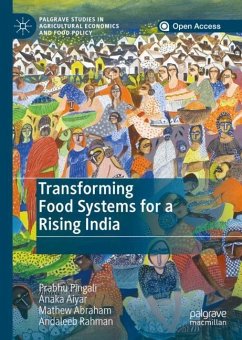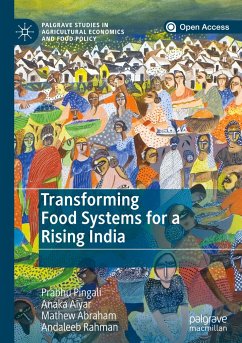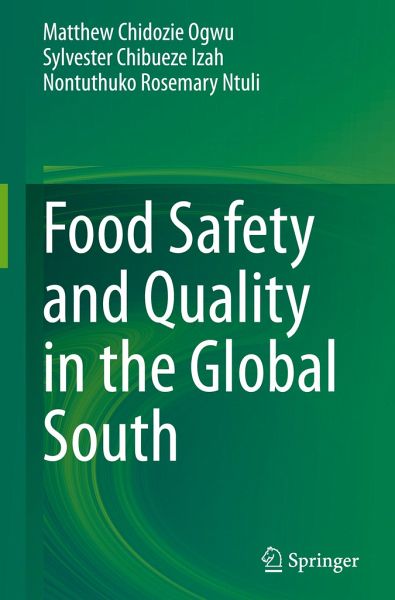
Food Safety and Quality in the Global South

PAYBACK Punkte
95 °P sammeln!
This book focuses on sustainable food systems in the Global South as highlighted by the United Nations Sustainable Development Goal 2, which seeks to end global hunger through food and nutrient security. It addresses the organoleptic properties of food that contribute to food quality as well as aspects of food safety such as the systematic handling, preparation, packaging, contamination, and storage within the food system to ensure food quality is maintained while preventing food-borne illnesses. The book assesses the state of food quality in the Global South and promotes the establishment of ...
This book focuses on sustainable food systems in the Global South as highlighted by the United Nations Sustainable Development Goal 2, which seeks to end global hunger through food and nutrient security. It addresses the organoleptic properties of food that contribute to food quality as well as aspects of food safety such as the systematic handling, preparation, packaging, contamination, and storage within the food system to ensure food quality is maintained while preventing food-borne illnesses. The book assesses the state of food quality in the Global South and promotes the establishment of critical control points for food quality monitoring and maintaining adequate nutrient levels in food while keeping out organic, inorganic, and synthetic contaminants. The book also contains recommendations for corrective actions, including consumer information systems and remedial health actions. The book systematically connects food safety and quality in the Global South with broader health and sustainable development implications, including the rising concern of non-communicable diseases. This comprehensive book delves into various aspects of food safety and quality in the Global South, offering insights into challenges, solutions, and emerging trends across multiple disciplines.
This book serves as a valuable resource for academics, researchers, policymakers, and practitioners involved in food science, public health, and sustainable development. The diverse range of topics covered contributes to a holistic understanding of the complexities involved in ensuring safe and high-quality food in the unique context of the Global South.
This book serves as a valuable resource for academics, researchers, policymakers, and practitioners involved in food science, public health, and sustainable development. The diverse range of topics covered contributes to a holistic understanding of the complexities involved in ensuring safe and high-quality food in the unique context of the Global South.



